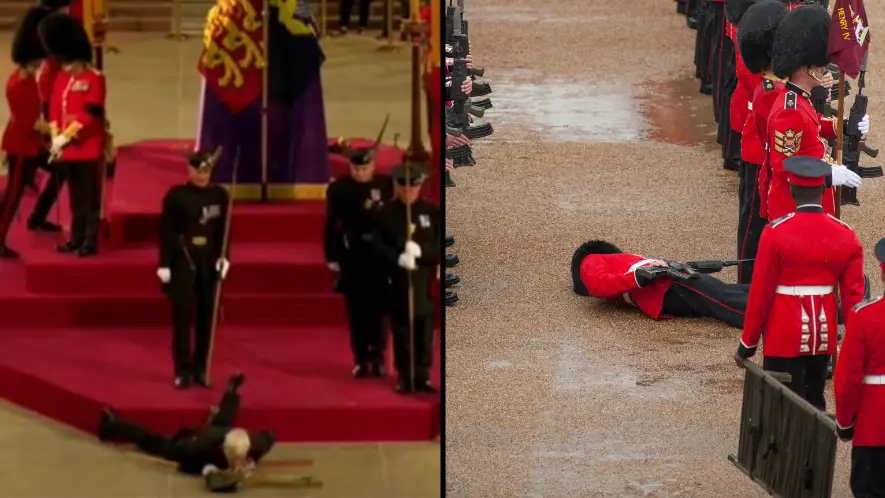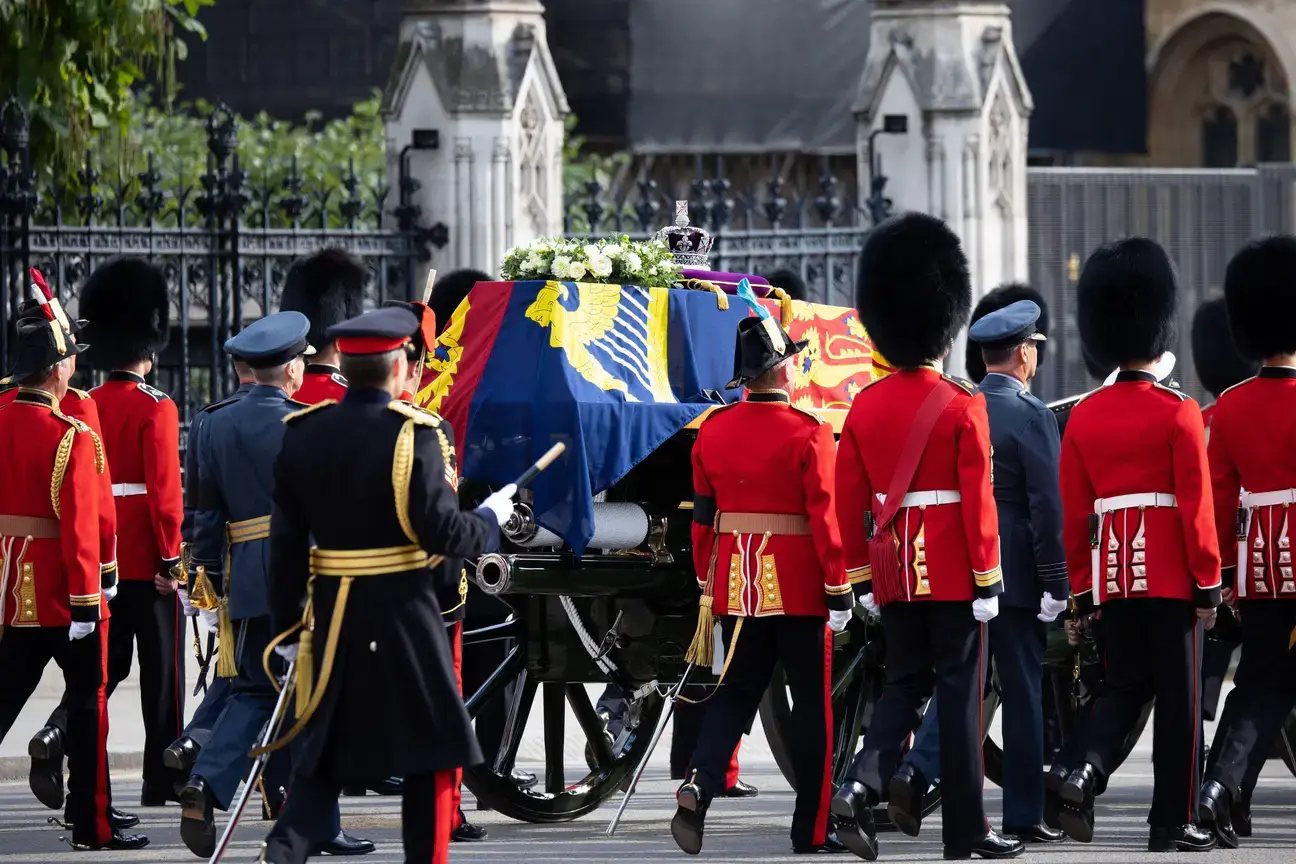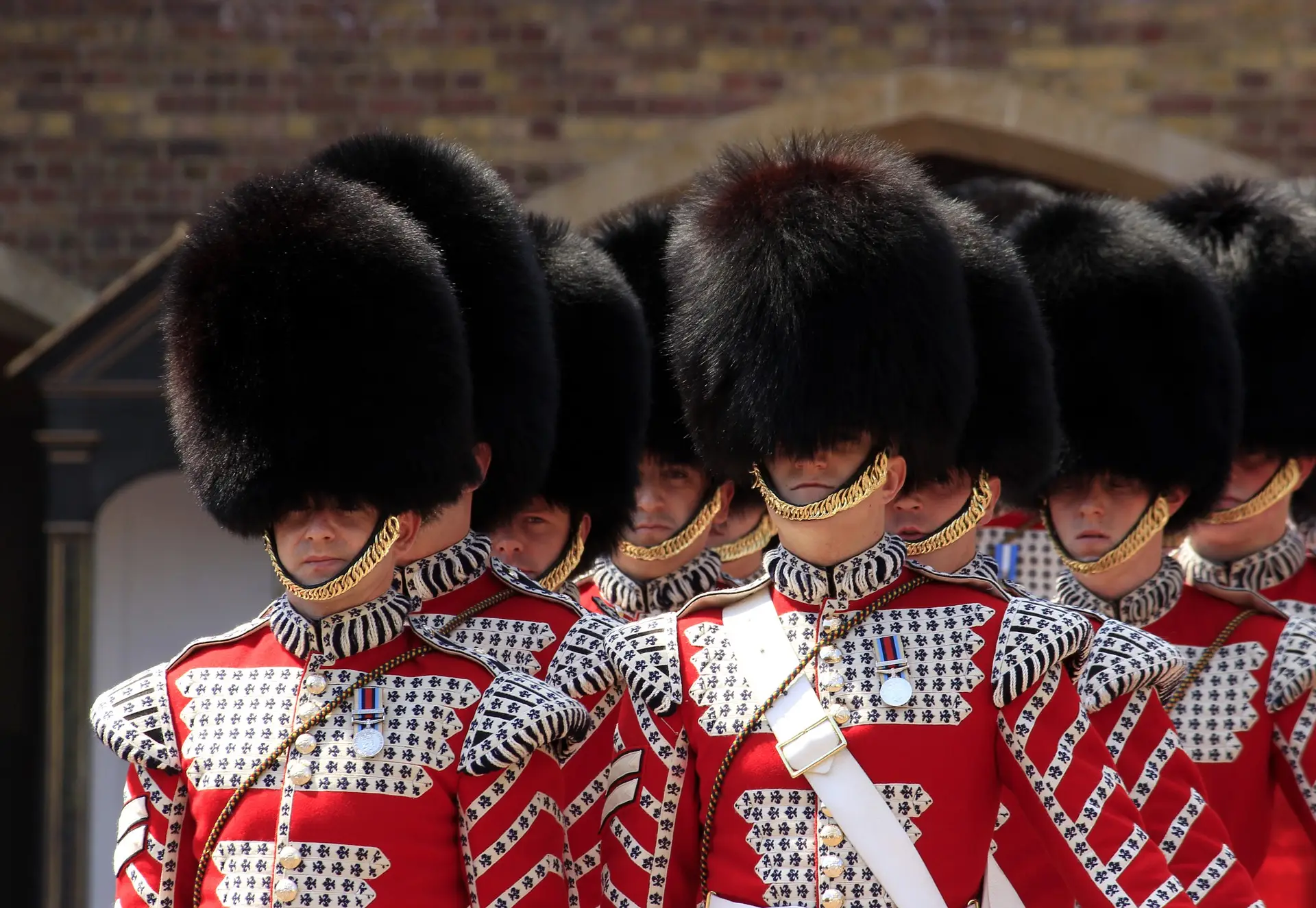
As the news broke this week over one of the Queen's royal guards fainting whilst standing duty alongside the late monarch's coffin, it turns out fainting soldiers is not at all uncommon.
The world caught a snippet before footage was suspended by the BBC when a royal guard suddenly collapsed during a live broadcast.
Watch it here:
Advert
The Queen's coffin is being guarded 24 hours a day for her lying-in-state, with soldiers rotating every 20 minutes from beside the coffin. In total throughout their shift, they are expected to stand still for six hours.
It was one of these shifts that saw one of the royal guards, who was standing at the foot of the late monarch's casket, lose consciousness and collapse to the floor.
Whilst the footage was barely on air for a minute, it wasn't long before the snippet was quickly circulated on social media.
Many viewers expressed concern for the guard who was immediately attended to.
However, the other guards on duty looked completely unfazed by the incident and where instead fully committed to their duties of guarding Her Majesty’s coffin.
It is currently unknown if he suffered any injuries.

The shocking incident has revealed that fainting guards is a much more common occurrence than many of us realised.
Large scale events including the Trooping the Colour, which require guards to stand still for extended periods of time, have seen guards faint before whilst stood on duty.
Major Dai Bevan, who led the 101-strong Guard of Honour from the Welsh Guards at the Prince and Princess of Wales' wedding, revealed that guards are actually taught to 'faint to attention' and as a part of their training, are taught to avoid falling sideways or holding onto something for support.
Speaking to The Express back in 2011, Major Dai Bevan said: "You have to faint to attention," before casually adding: "It will probably involve a broken nose and a whole lot of missing teeth."
Those certainly aren't considered perks of the job!
Of course, the true discipline that is displayed by those soldiers who can quite literally teach themselves to topple forward face first while still holding their bayonet-tipped rifles is highly admirable.

The real reason why fainting can happen whilst on duty is that standing perfectly still for long periods of time can put immense strain on the body and mind.
Both of these can cause exhaustion, muscle strain, lower back pain and swelling of the feet.
This combined with the weight of their uniform, environmental conditions and pressure to fulfil their duties can mean the guards can faint whilst on duty.
The Queen is lying in state in Westminster Hall until 6.30am on Monday, September 19. The public can queue 24 hours a day for the chance to see her coffin.
Topics: Royal Family, The Queen, UK News